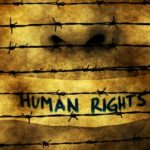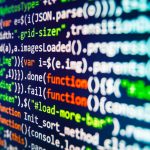A Creeping Surveillance State: An Interview With the Human Rights Law Centre’s Emily Howie

The ABC has launched a legal challenge in the Federal Court against the validity of the search warrant that AFP agents used to raid its Sydney office on 5 June. The national broadcaster claims the warrant breaches the implied freedom of political communication in the Australian Constitution.
And News Corp looks set to follow suit, as it will contest the raid federal police carried out on the home of its political editor Annika Smethurst on the day prior to the ABC operation. It was provoked by an article she wrote about a secret government proposal to increase spying on citizens.
The scope of the press raids shocked the nation, even those who’d been paying attention to the 70-odd pieces of rights-eroding national security legislation that have been passed at the federal level with bipartisan support since 9/11.
Rights for the taking
The warrant the ABC is now challenging allowed AFP officers to “add, copy, delete or alter” information on the national broadcaster’s computer. These are new powers that were gifted to law enforcement agencies via the Assistance and Access Bill that was passed last December.
This legislation gives law enforcement and security agencies the power to compel communication companies to provide access to their systems, so that government can get around encryption. Draconian would be the correct term to describe the contents of the bill.
Another of the other main offenders when it comes to legislation that’s undermines the rights of Australians is the Abbott government’s 2015 metadata retention bill, which set up a system where all telecommunications companies are required to store their clients’ metadata for a 2 year period.
A total of 22 law enforcement and security agencies are permitted warrantless access to this metadata. It includes the date and time of calls, emails, texts and internet sessions. And while this might not seem like much, experts explain it can be used to build up quite a profile of someone.
And then there’s last year’s Espionage and Foreign Interference Bill, which made it a crime for a journalist or anyone else to report information that could damage the nation’s international reputation. This offence is punishable by 25 years or life imprisonment, depending on intent.
Democracy at risk
Australia’s Raids on Journalists Reflect a Creeping Surveillance State is an article that appeared in the Washington Post two days after the ABC raid. It was written by Emily Howie, a legal director at the Human Rights Law Centre.
Ms Howie asserted that the press raids had led many Australians to come to the realisation that their nation is fast becoming a surveillance state. “It should mark a moment of reckoning for the country and its entire approach to media and public transparency,” the lawyer wrote.
Sydney Criminal Lawyers spoke to Emily Howie about the government’s habit of passing laws that whittle away at citizens’ rights, why the bid for greater public safety must be balanced and how establishing a charter of rights would bring a halt to the creep towards all-pervasive surveillance.
Firstly, it’s been three weeks since the AFP press raids were carried out. On Wednesday, the executives from the ABC, Nine and News Corp appeared at the National Press Club calling for press freedom and changes to the law.
Ms Howie, with time to reflect, what would you say is the significance of the raids?
The raids continue to highlight just how dangerous it is to be a journalist in Australia. If you are a person who reveals information in the public interest, then you face the prospect of investigation and gaol time.
My concerns at the time of the raids were that it would stop people coming forward who know about things happening behind closed doors that we’ve got a right to know about, and that it would stack the odds against publication for news outlets that have to balance up whether or not it’s worth running a story.
That would mean it would be bad for press freedom, democracy and the accountability of government.
But, I hope that some really positive reforms are going to come out of this that would see protections for the press and whistleblowers. It’s great to see news outlets calling for the reforms we need in this area.
A few days after the raids, you had an article in the Washington Post outlining that this country is increasingly becoming a surveillance state. How would you say Australia has come to be a nation of mass surveillance?
We’ve become a nation of mass surveillance by just walking into it. It happened slowly over the last 20 years. But, certainly, governments of all persuasions have passed laws that have gradually chipped away at our rights.
These laws provide new powers for law enforcement and intelligence agencies, but they don’t complement those powers with the necessary oversight that you need when you get more power.
We’ve seen things like the metadata laws that allow warrantless access to our online and telephone records. And the ability in the Assistance and Access Bill to create backdoors into encrypted devices.
In terms of our metadata laws, there’s nowhere near the kind of safeguards that you see in similar countries in Europe, Canada and the USA. While the backdoors into encryption are unprecedented internationally.
What we have is a tendency for government to err on the side of what law enforcement and intelligence agencies say they want or need, without enough thought given to what’s left for us: for individuals, for press freedom, and for the accountability of government.
And essentially, our democracy suffers as a result.
You’ve just mentioned the Assistance and Access Bill, which enacted laws to allow government to get passed encryption. What do you think about the scope of the powers that were afforded to law enforcement via this bill?
It’s an extremely worrying act that has granted unprecedented levels of access into Australians’ private lives. And we just don’t have anywhere near the safeguards that are needed to make us feel secure that those powers aren’t being abused.
I’m not saying that agencies will abuse them. But, really, we, as citizens, can have no confidence that there is proper oversight of those powers.
The AFP raid on the home of News Corp journalist Annika Smethurst was over an article she wrote based on leaked documents relating to a proposal to allow the Australia Signals Directorate to spy domestically.
Less than two weeks following the raid, Peter Dutton appeared on the ABC suggesting that the nation has a “sensible discussion” about allowing its foreign intelligence gathering agency to spy on its own citizens.
Considering the AFP and ASIO already keep an eye on citizens internally, why do you think the government wants the ASD to surveil the public as well?
That’s a really good question. And it’s one that you need to ask the government.
What we do know is that if the government wants to increase its ability to spy on us, then we should see the evidence as to why they need that extra power. And we have a right to know the new powers that they’re giving agencies to do that.
Prior to the election, another Coalition priority was establishing a national facial recognition system that will have the ability to match all citizens’ identification photos with images from CCTV cameras in real time nationwide.
What are the implications of establishing a surveillance system of such breadth?
You can see the final and horrific endpoint to that kind of surveillance when you look at places like Xinjiang in China, and the way that individuals are monitored using facial recognition as they walk down the street.
I’m not saying Australia is anywhere near that at the moment. But, that is the endpoint that we don’t want to get to.
At the moment, the facial recognition bill – which lapsed when parliament dissolved for the election – has two really worrying impacts for democracy and human rights in Australia.
The first is that it could impact on the way that people gather together in public and speak out on things that they care deeply about.
People could be at a protest and wanting to express themselves, but don’t want to be subject to facial recognition monitoring that can criminalise them if the technology purports to match them in a database of people who are wanted.
The main concern that we have is that the technology is just not that good. The technology is incredibly unreliable.
The most recent evidence that we’ve seen said that it’s up to 98 percent unreliable – that it’s wrong 98 percent of the time. An even bigger issue is that it’s even more wrong when it comes to people of colour and women.
So, it is way too early for Australia to go down the path of facial recognition technology. It is wrong in principle. And because the technology is so unreliable, it is inefficient in practice.
In your article, you point out the need for an Australian Charter of Human Rights at the federal level. What would be the benefit of establishing a national bill of rights?
The benefit would be seen in a range of different ways. It would establish a document that everyone of us can point to and understand the rights we have because we are humans. And the way that our society is established on the basis of the protection of human rights, as well as compassion, care and respect for dignity.
That’s a very important educational and cultural tool for the country.
But, the surveillance laws that Australia has passed over the last 15 to 20 years, have woeful safeguards for our rights, and have only been passed because there’s been a lack of consideration of human rights in their drafting.
If you take the metadata retention laws, for example, Australia’s system would not be allowed in Europe. It would be an unlawful system of data retention, because it holds too much data for too long, as well as allowing too many agencies access over crimes that aren’t that serious.
The reason why Europe has got these laws right is because they have the European Convention on Human Rights that requires governments to balance the rights of their citizens with very important interests in maintaining public safety.
They’re required to do that balancing while they’re making laws. And that’s the kind of difference that a Human Rights Charter would have for Australia as well.
And lastly, Ms Howie, you ended your article warning that unless the nation takes this moment to reinvigorate its democracy, the principles the Australian political system is founded upon could be at risk.
If the nation doesn’t put a halt to the ever-increasing surveillance state, where would you say it’s at risk of heading?
I want to see Australia continue to be a really strong, prosperous, healthy and peaceful democracy. We are so lucky to be in a country that is so safe and prosperous.
My concern is that at the same time that we enjoy the country that we live in, we don’t take our eyes off the ball. We need to be constantly vigilant to make sure that all the things that make this country great are fiercely protected.
And I hope the raids that happened a couple of weeks ago have been a wake up call for lots of people in Australia, and that the result of it will be that we take those necessary actions to preserve our freedoms and democracy.







